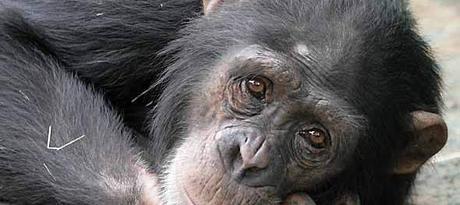
Most animals will shed tears if their eyes become irritated; but only humans cry in the absence of that. Although there have been some anecdotal reports of so-called "emotional" crying in many species - from alligators to elephants - humans are the only species that have been confirmed to cry. But why did we evolve to cry? Sadly, researchers have been unable to come up with a definitive explanation (because it hasn't been studied that extensively). However, recent research has identified several potential reasons for our tears.
The fact that there actually may be a reason for crying stands in contrast to early thoughts on the subject. The almighty Darwin himself believed that crying served no real function and was simply an unintentional bi-product of the strong bonds humans form between one another. However, this was soon dismissed by psychologists who believed that crying acts as a sort of catharsis. Some even posited a biological reason behind this: tears shed excess hormones and so helping improve mood.
The view that it can be beneficial to cry is still very widespread. Recent surveys found that 90% of the public accepted that crying helped improve the mood. Yet when studies examine this possibility the research simply doesn't support this. Surveys conducted shortly after someone cried found that there was no improvement in mood. In fact, people often felt worse after they had a good sob.
So if crying doesn't benefit us then why would it evolve? Perhaps Darwin was right all along and it doesn't actually serve a function. However, some researchers suggest that we may have been looking at crying wrong. When we cry it might not benefit us directly, but it does serve as a strong social signal to others. This can encourage others to come to our aid. Their support helps us feel better in the long run, even if they crying itself doesn't. Additionally, these genuine emotional reactions can help convince observers how much we care about a particular situation. By demonstrating our sincerity, this could encourage them to co-operate with us in the future.
However, these responses are very circumstantial. Crying in the wrong situation can elicit a negative reaction from other people. Or if you're a man. Males crying - regardless of the circumstances - was generally viewed pretty negatively (swelling up - or perhaps a single manly tear - were viewed as more appropriate).
The fact that crying can have a negative reaction would surely decrease its chance of evolving. The net benefit of crying would be reduced if it was sometimes bad for us. Yet it is worth noting that these circumstances are strongly influenced by culture. Perhaps in the past the benefits of crying are more widespread, and it's only recently that culture has clamped down on it.
Sadly cross-cultural studies on the subject are sadly lacking. And without them we can't explore this hypothesis much further. If we could investigate hunter-gatherers or other groups; perhaps we might discover that many of the negative reactions to crying are modern. This would lend credibility that it did evolve as a sort of emotional cry for help. On the other hand, finding they also don't view crying that positively could help kill this idea dead.
So for now it would seem the ultimate explanation for the evolution of crying is beyond us. It's likely an emotional cry for help, but more is needed. And if that idea is vindicated, perhaps the researchers can send a single manly tear at the joy of finally figuring out why crying evolved.
References
, (). The perception of crying in women and men: Angry tears, sad tears, and the "right way" to cry. In , (Eds.),Group dynamics and emotional expression (pp. 92-117). New York, NY: Cambridge University Press
Vingerhoets, A. J., & Bylsma, L. M. (2015). The Riddle of Human Emotional Crying: A Challenge for Emotion Researchers. Emotion Review, 1754073915586226.

